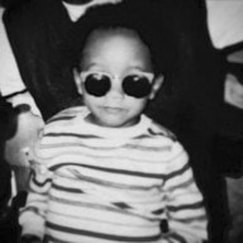 Welcome guest blogger and one of The HEAL Project’s Advisory Board Members, Hari Ziyad: Hari Ziyad is a New York based storyteller and the editor-in-chief of RaceBaitR, deputy editor of Black Youth Project, assistant editor of Vinyl Poetry & Prose, and writer for AFROPUNK. You can follow them on Twitter @hariziyad. *********************************************** TW/CW: Child Sexual Abuse, Survivor, Racism As a writer who constantly deals with the question of Black liberation in my work, I’m often asked, “What does a free future for Black people look like?” I never quite know how to answer. Any response would posit to be the solution to a problem over 400 years old, and any answer less than a book’s length couldn’t possibly address all of the complexities that have festered in the bloody cracks of those broken centuries. I usually reframe it as a question of what liberation would feel like, and somehow words are able to come to me a little more quickly then. Perhaps it’s that I am so used to my eyes playing tricks on me–claiming there is so much color in a world that feels more Black and white (violence) by the day–that I trust them much less than the rest of my body. My body has always seemed to know when things weren’t right, even when I hadn’t the sense or maturity to listen. The way I think about the sexual violence that happened to me as a child has had many iterations over time. When I was younger, I convinced myself that my body was wrong, and that what had happened to me wasn’t that big of a deal. At the time, I thought I was only convincing myself that I was misreading the way my body collapsed into its center at every sight of him, or the way my memory began to fog the nights in question over until the details suffocated underneath the clouds. I was creating a new truth–it wasn’t as bad as it seemed. But I think now I was also convincing myself that I was misreading how my body gave itself to him. I was telling myself that my erection, probably one of the first I’d ever had, asked for what the rest of me soon after received. And that was what I meant by “It wasn’t as bad as it seemed.” If I were old enough to want it, at the cusp of my first decade, I was old enough to get it. The thing about bodies is that they won’t let you stick with a lie for too long. They will slowly unravel, and I eventually came undone. My body both craved unsolicited touch from strangers and would react with extreme violence to the same, with no understanding of the line separating the two responses. The longer I stuck with the story that my body was malfunctioning, the more and more violent error messages it gave to me and the rest of the world also lying to it about what it experienced as Black, nonbinary, and queer, too. My harm-doer is dead now, and, after lots of work, so are many of the things keeping me from listening to my body today. With him, however, I lost something that I still cannot see or name, much like that free future people keep asking me about. A free past, maybe. But I did not lose this feeling, of being forever altered before I even had an original self to be. Of knowing something was mine before the world that sold my ancestors into slavery took it from me. Again. I think Black liberation feels like that thing lost–like having a self, an innocence that is undamaged. Of not always being wrong before you even open your mouth. Of not always being criminalized before the crime. Of not always having your body turn into a cage, or a cage surrounding your body. Of having pathways to redress. Of mattering. It feels like the joys of childhood, before that is taken away from you. And it starts with children, Black children, the world having not yet been able to completely take them from themselves, even though it has always already began hunting them. This is why I center Black children and ending childhood sexual violence in everything that I do. If we could protect this thing I cannot name, but that Black children feel–unbridled Black joys and rages and everything that comes with being fully alive–then perhaps we will finally see what that future might look like. Thank you Hari for your time, energy and forethought.
1 Comment
|

 RSS Feed
RSS Feed